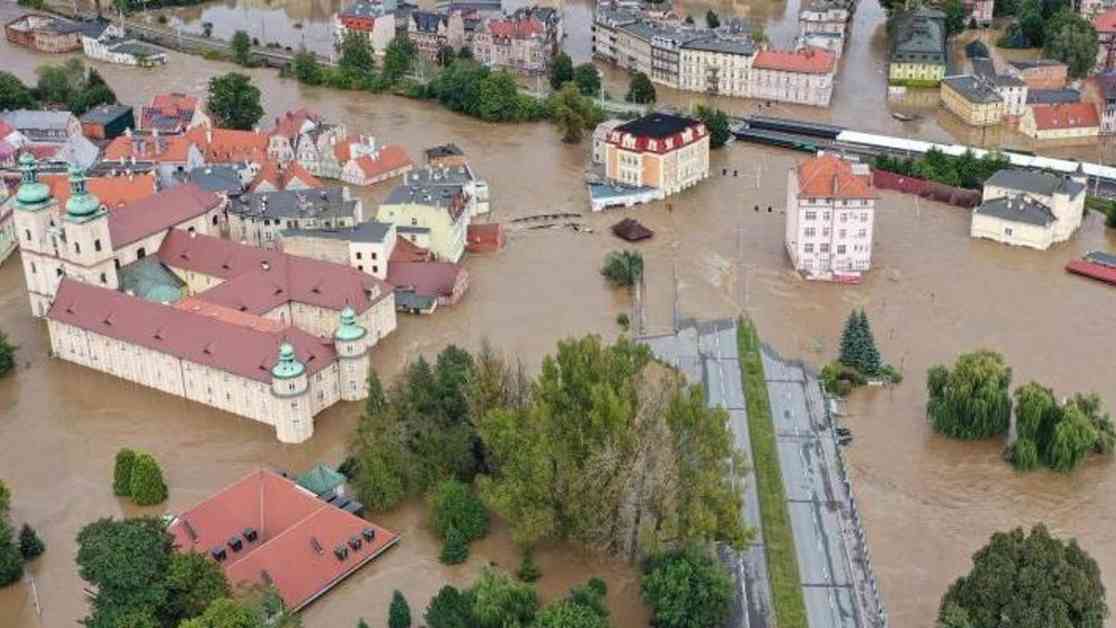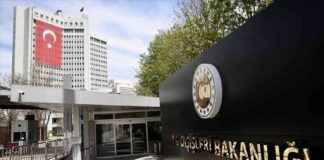Poland is currently facing a crisis as it struggles to cope with the aftermath of Storm Boris. Prime Minister Donald Tusk has declared a state of natural disaster in the southern and southwestern regions of the country affected by the storm. This declaration aims to prevent the potential catastrophic consequences of natural disasters, as well as to manage and mitigate the destruction and damage caused by such events. Prime Minister Tusk has also announced that they will be seeking financial assistance from the European Union to address the damage caused by the storm.
The state of natural disaster allows for restrictions on personal rights and freedoms in areas affected by flooding and water inundation for up to 30 days. This measure is crucial in ensuring the safety and well-being of the population in the face of such emergencies.
Since the persistent rainfall in southern Poland, numerous rivers have overflowed, leading to the flooding of several settlements including Stronie Slaskie, Klodzka, Glucholazy, Ladek Zdroj, and Bielsko Biala. The situation has been dire, with the dam wall in Stronie Slaskie collapsing and a bridge in Glucholazy being destroyed. Tragically, two individuals lost their lives in the floods in the cities of Klodzko and Bielsko Biala.
Impact on Infrastructure and Communities
The relentless rainfall and subsequent flooding have wreaked havoc on the infrastructure and communities in southern Poland. Roads have been washed away, bridges have collapsed, and homes have been inundated with water. The destruction of critical infrastructure has hampered rescue and relief efforts, making it challenging for authorities to reach those in need.
In addition to the physical damage, the emotional toll on the affected communities has been significant. Many residents have been displaced from their homes, losing their belongings and livelihoods in the process. The trauma of witnessing the destruction of their neighborhoods and the loss of loved ones has left many in a state of shock and despair.
Response and Relief Efforts
In the wake of the natural disaster, emergency response teams have been working tirelessly to provide assistance to those affected. Rescue operations have been underway to evacuate individuals stranded by the floods and relocate them to safer locations. Temporary shelters have been set up to accommodate those who have been displaced from their homes.
Furthermore, humanitarian organizations and volunteers have mobilized to provide essential supplies such as food, water, and medical aid to the affected communities. The solidarity and support from both local and international organizations have been crucial in alleviating the suffering of those impacted by the disaster.
Preventative Measures and Future Preparedness
As Poland grapples with the aftermath of Storm Boris, there is a growing recognition of the need for enhanced preventative measures and disaster preparedness. Climate change is exacerbating the frequency and intensity of extreme weather events, making it imperative for governments to invest in resilience-building initiatives.
Moving forward, policymakers must prioritize infrastructure upgrades, early warning systems, and community training to better mitigate the impact of future natural disasters. By investing in disaster risk reduction strategies, Poland can enhance its ability to respond effectively to emergencies and protect the lives and livelihoods of its citizens.
In conclusion, the declaration of a state of natural disaster in Poland underscores the urgent need for comprehensive measures to address the impact of extreme weather events. The resilience and solidarity demonstrated by the Polish people in the face of adversity serve as a testament to their strength and determination in overcoming challenges. As the country continues to recover and rebuild, it is essential for policymakers to prioritize long-term solutions that enhance preparedness and resilience to safeguard against future disasters.





















